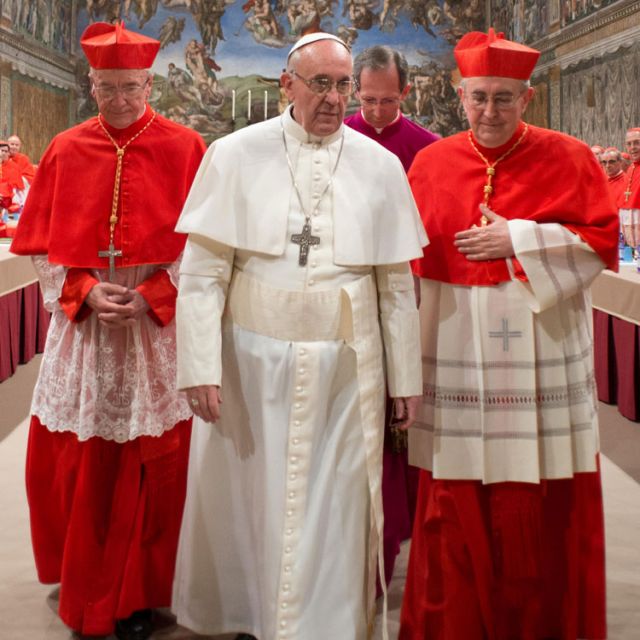The pope may completely change, slightly alter or keep his episcopal coat of arms and motto for his papal coat of arms. But the choice he made as a bishop still sheds some light on the person and ministry of the man who became pope March 13.
His episcopal motto in Latin is "Miserando atque eligendo," which means "because he saw him through the eyes of mercy and chose him."
The phrase comes from a homily by St. Bede -- an English eighth-century Christian writer and doctor of the church.
St. Bede's homily looks Mt 9:9-13 in which Jesus saw the tax collector, Matthew, sitting at a customs post and said to him, "Follow me." St. Bede explained in his homily, "Jesus saw Matthew, not merely in the usual sense, but more significantly with his merciful understanding of men."
"He saw the tax collector and, because he saw him through the eyes of mercy and chose him, he said to him: 'Follow me.' This following meant imitating the pattern of his life -- not just walking after him. St. John tells us: 'Whoever says he abides in Christ ought to walk in the same way in which he walked.'"
St. Bede continued: "This conversion of one tax collector gave many men, those from his own profession and other sinners, an example of repentance and pardon. Notice also the happy and true anticipation of his future status as apostle and teacher of the nations. No sooner was he converted than Matthew drew after him a whole crowd of sinners along the same road to salvation."
The pope's episcopal coat of arms is a blue shield with the official seal of the Society of Jesus on top in yellow and red, representing the religious order in which the pope was ordained as a priest in 1969.
Below the seal on either side are, in white, a solid five-pointed star, which often symbolizes the Nativity, and a cluster of grapes, which designates the Eucharist. The colors and the sun motif of the coat of arms are reminiscent of the Argentine flag's blue and white colors, with a blazing yellow sun in the center.
Pope Francis was appointed auxiliary bishop of Buenos Aires in 1992 and became archbishop of the archdiocese in 1998.



